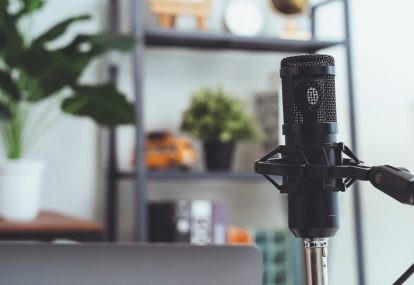Do you know what the hardest part to podcasting is?
Take a guess.
No, it’s not creating content or starting the podcast.
Clue: it has something to do with tools.
The answer? Post-production.
Recording is just one component of podcasting. Not everyone may be aware of it, but finding a suitable guest and recording the show pales in comparison to the challenges post-production presents. For starters, you’ll be editing out filler words, dead air, and background noises to ensure your audio comes out polished and professional.
Fortunately, with the right tools (and the right mindset, of course!), you can start making waves in the podcast-sphere. However, a kickass content and a good story will not suffice, you also need to make sure the editing is flawless if you want to present something that is truly exceptional.
Podcasters use different methods for the post-production of their episodes. Some use automatic applications, while others hire podcast editors. If you are still on the fence about your next post-production move, let’s tackle how these two compare side-by-side.
Automated applications
One way to quickly polish a recorded audio is by using certain applications. Apps like Auphonic and Levelator are just two among the many that are used for automatic audio post-production.
Auphonic
Auphonic is a web-based automated post-production software for cleaning up audio. Users just upload their audio files, be it MP3, WAV, or MP4 and it will do the rest. Auphonic will require little to zero audio editing knowledge.
Auphonic levels, normalizes, and restores audio to create a professional-sounding podcast. It also has automatic noise gate and ducking removal.
It is easy to use and its interface is user-friendly. Auphonic also connects to Dropbox, YouTube, SoundCloud, and FileZilla among other external applications.
Although you can download the software for free, it is not entirely free of charge. Podcasts with a weekly show of less than 30 minutes can still use it for free since can only edit the first two hours free.
If you have a longer podcast, you may need to pay a one-time credit until you use it up or pay the monthly recurring fee for nine hours of audio per month.
Levelator
As the name suggests, Levelator adjusts the audio levels in your podcast so it is similar across the different speakers. It compresses, limits, and normalizes your audio file. The Levelator is effective in keeping the sound levels consistent.
It has a drag-and-drop interface and can be used for WAV or AIFF files. This makes it easy to use for anyone who’s just starting out.
The pros and cons of automated software
These applications are useful in enhancing files to produce better sounding audio. These automated tools are great for casual and newbie podcasters. If you’re just feeling lazy or just don’t have any post-editing expertise, these will solve your problems!
The upside to using Auphonic and Levelator is that these are free software that you can download for both Windows and Mac computers. Although such applications can reduce the time you spend on your audio files as it automatically levels them, you still have to polish things prior to publishing.
In addition, these tools work through algorithm. That means quality cannot be guaranteed. You can’t tell these apps, “Can you edit this certain part of the podcast for me? There’s a dog barking at the back.” Remember, these applications are designed to only do specific tasks.
There is no single software that can thoroughly cover all the editing you need and require.
Podcast Engineers
Podcast Engineers is a team of audio editors and engineers that provide professional audio editing and mastering. They help newbies start their own podcasts while ensuring top-notch quality standards are observed.
In comparison to applications, Podcast Engineers offer monthly subscription plans for podcast editing. Rates can vary depending on your needs and the length of your podcast. You also have the option to customize your plan. Should you prefer it, you can ask for full podcast editing from start to finish.
Human factor
The human factor can make a world of difference when editing podcasts. Professional, seasoned, and competent sound engineers will be polishing your audio files so you can rest assured quality is never compromised. That’s quality assurance no software or application can ever equal or replicate.
Recorded files can be a big mess. Cutting out all the dead air, filler words, and background noise will require significant amount of time, effort, and of course, expertise. Fortunately, leaving your post-production in the hands of experts will not only give you peace of mind, it will also give you the luxury to focus on your content and other important tasks that will require your attention.
How do you take care of your post-production needs? Let us know in the comments below!
Share this post!




